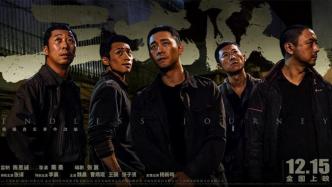
Note: This article contains spoilers
"The Three Brigades" produced by Chen Sicheng and directed by Dai Mo is a very un-Chen Sicheng movie. Finally, it no longer transplants the story to the Southeast Asian background - all the real cities in the country appear in the film; "The Three Brigades" is not a remake either. From the successful suspense film, this is a script based on the non-fiction work "Please tell the director, the mission of the Third Brigade has been completed", written by Zhang Ji ("Dear", "Win the Championship"). The original work is just a short article of just over 7,000 words, providing a shocking "story summary", and it is the screenwriter who gives the story flesh and blood. "The Three Brigades" can achieve such a degree of completion, and the screenwriter deserves the most credit.
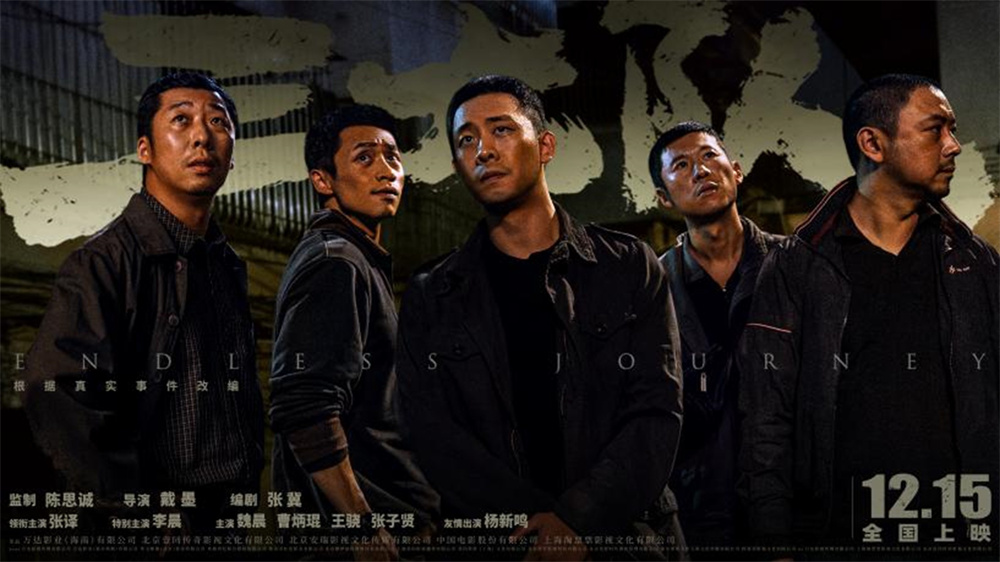
"Three Brigades" poster
The story in the movie took place in 2002. On a rainy night in a city in Guangdong, a rape and murder occurred. A 14-year-old girl in her prime was alone at home. Two brothers climbed into the room along the air conditioner and stole it. After waking the girl up, they raped and killed her. The Third Brigade of the Municipal Criminal Investigation Detachment, which has repeatedly solved major cases, was responsible for investigating this murder. Captain Cheng Bing (played by Zhang Yi) issued a military order to solve the case in five days.
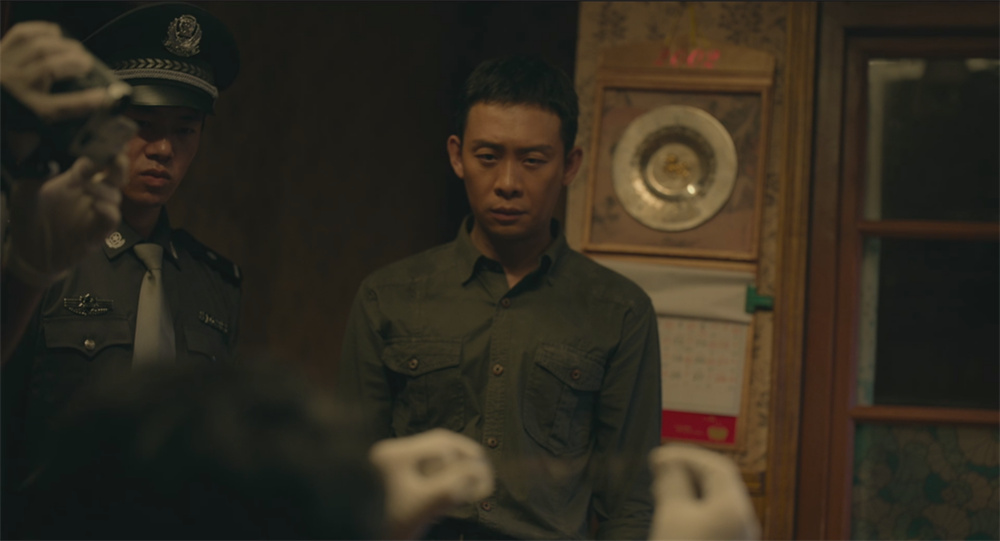
Cheng Bing (played by Zhang Yi)
After tireless investigation, there was a breakthrough in the case. One of the suspects, Wang Dayong, was arrested. He blamed his brother Wang Eryong for the murder, but remained silent on Wang Eryong's whereabouts. During the interrogation of Wang Dayong, the Third Brigade received news from the hospital that the master Zhang Qingliang (played by Yang Xinming) died of illness - the master had a cerebral hemorrhage just because he was chasing Wang Eryong the day before; at the same time, Wang Dayong exposed obscenely to the sticker of his daughter's head on the cover of Cheng Bing's mobile phone. Laughter: This completely angered the Third Brigade. They used some "tricks" on Wang Dayong, and Wang Dayong died unexpectedly.
The fate of the Third Brigade took a turn for the worse. They were charged with intentional injury for extorting confessions through torture and causing death. Their police uniforms were turned into prison uniforms. Cheng Bing was sentenced to eight years in prison (later reduced by two years), and the other team members' sentences varied.
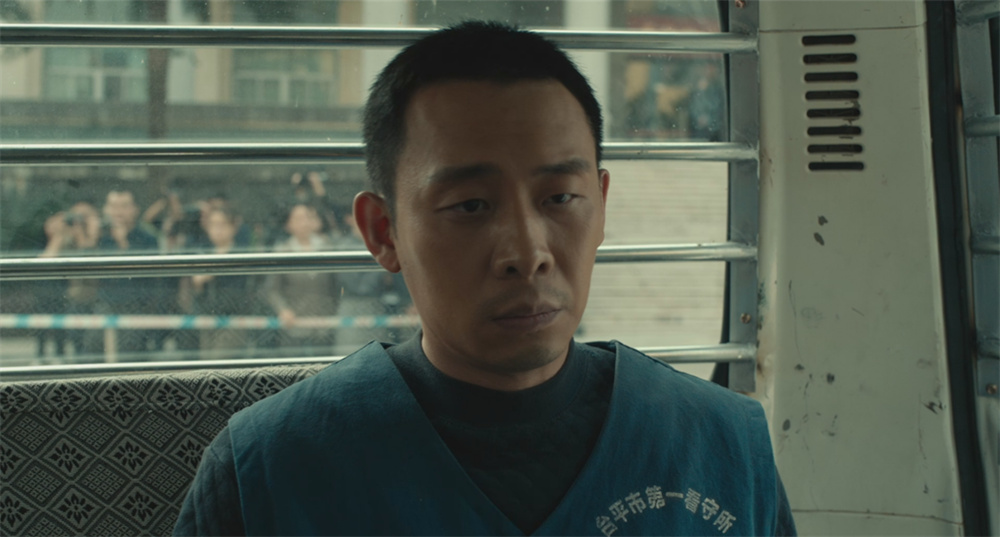
Cheng Bing goes to jail
The Third Brigade was imprisoned for extorting confessions through torture, which was a plot in the original work. The movie enriches the reasons for the Third Brigade to resort to tactics, but no matter what reason, it does not change the fate of the Third Brigade - no matter how hateful Wang Dayong is, only the law has the power to sanction him; any torture to extract confessions is not allowed, because Once the police can subjectively decide whether to resort to resorting to violence, there is a possibility of abuse of power, which will cause serious damage to the rule of law. The missteps of the Third Brigade serve as a warning to all police officers not to abuse their power. It also shows that the protagonists of the movie were not perfect at the beginning.
After being released from prison, the other members of the Third Brigade tried to live a "normal" life. The original text briefly mentions the other members of the Third Brigade, but "The Third Brigade" is changed to a group portrait scene, and each member of the Third Brigade has a personalized portrayal.
While Cai Bin (played by Cao Bingkun) was in prison, his wife left. Now alone, he opened a bracelet shop far away from his original place of residence. He was disillusioned with the world and tried to find inner peace.
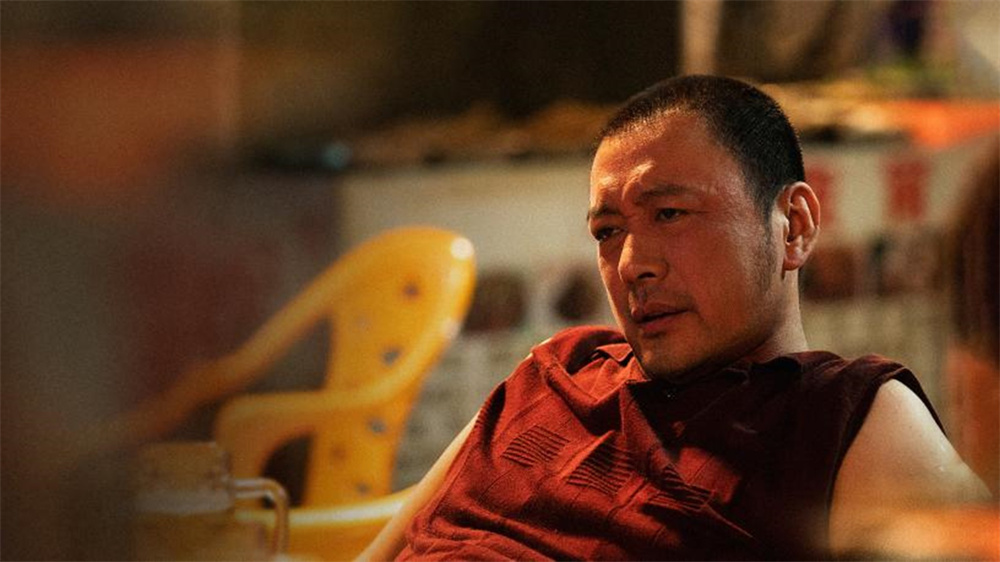
Cai Bin (played by Cao Bingkun)
Ma Zhenkun (played by Wang Xiao) is expected by his wife (guest star Gao Ye). After he was released from prison, the couple ran a food stall and lived a peaceful life.
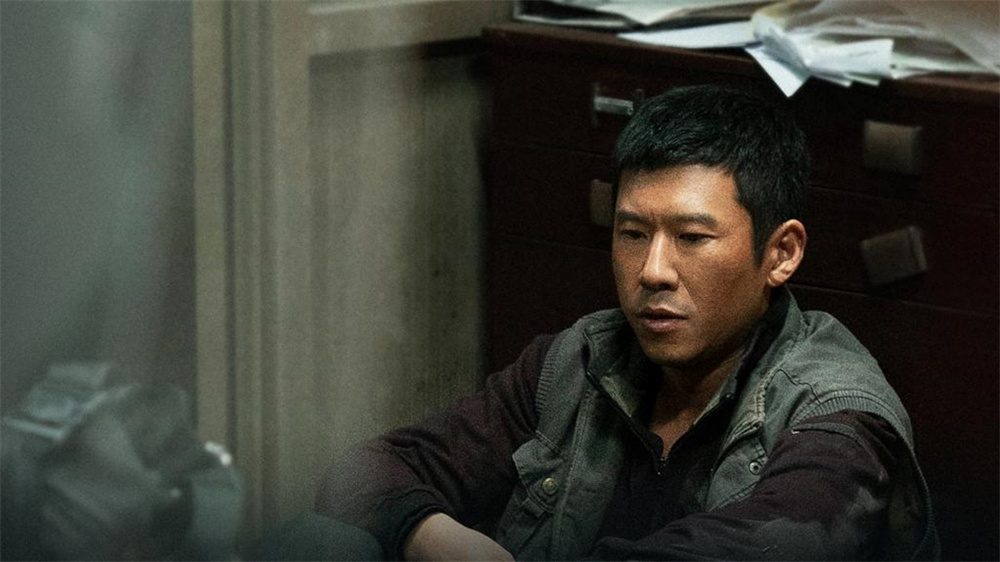
Ma Zhenkun (played by Wang Xiao)
Liao Jian (played by Zhang Zixian) still maintains a stingy but kind personality and works as an insurance salesman with his son.
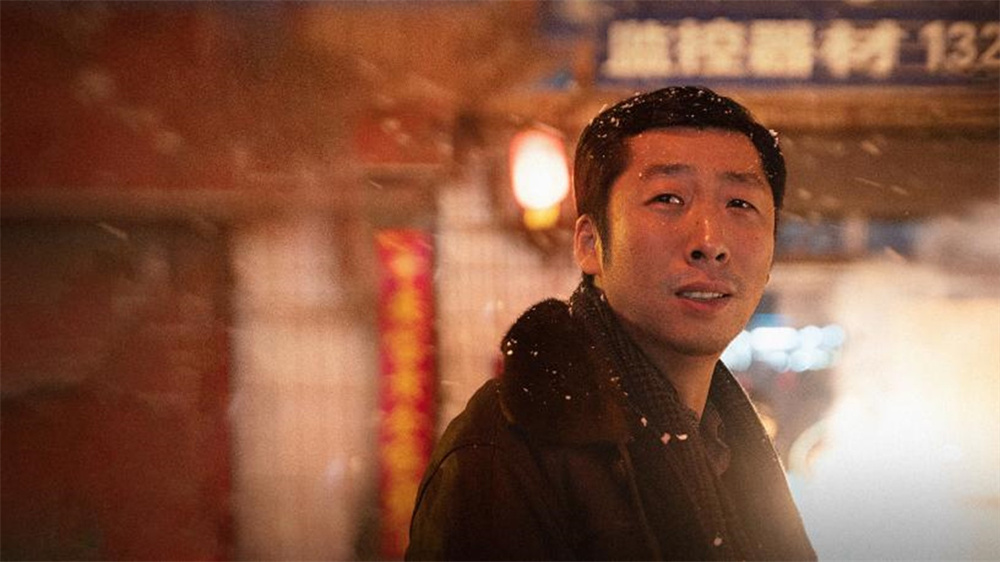
Liao Jian (played by Zhang Zixian)
Xu Yizhou (played by Wei Chen), a passionate dog trainer who had just joined the third brigade when the incident occurred, has now become a dog trainer whose passion has nowhere to go.
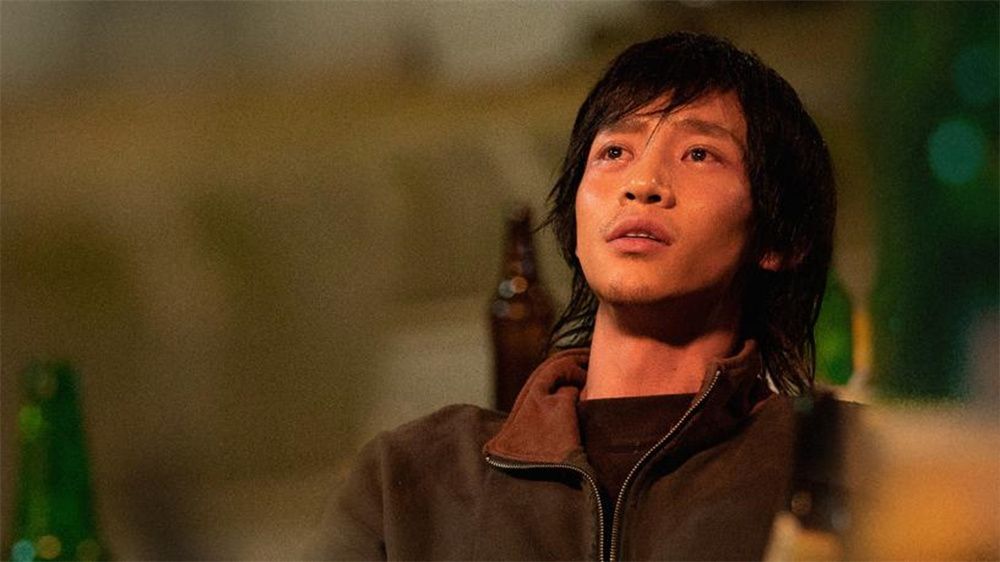
Xu Yizhou (played by Wei Chen)
Before and after he was imprisoned, Cheng Bing's life also experienced a huge gap. Before he was imprisoned, he was the majestic captain of the third brigade. He had a warm and happy family, and his daughter was proud of him. After he was released from prison, he took off his police uniform and became a key personnel who needed to report regularly to the Public Security Bureau. , he and his wife have divorced, and his daughter is also cold and alienated from him...
But you have to “look forward” in life, right? If Cheng Bing is willing, he can gradually live a "normal" life like his teammates. But Cheng Bing was not a person who could get over it easily. He still "looked backward".
Yu Gong, Wang Eryong has not been arrested, and the body of the 14-year-old murdered girl still cannot be buried; the military order issued by the former Third Brigade to the director has not yet been completed; although he took off his police uniform, the police uniform in his heart could not be taken off .
In private matters, Cheng Bing owed his master - the master fell ill and died of illness while chasing Wang Eryong; he felt guilty to the Third Brigade - the brothers suffered a trick of fate because of their involvement in the case... Find Wang Eryong and bring Wang Eryong to justice. To comfort the souls of the victims and give an explanation to the Third Brigade, it became Cheng Bing's "ego".
Cheng Bing decided to continue chasing the murderer. The former brothers did not really let go, and they decided to complete the unfinished mission with Cheng Bing.
As if this was a journey to the West to learn from the past, they changed different jobs - taxi drivers, property security guards, Internet cafe network administrators, and air-conditioning repairmen, in order to expand their contact with people and inquire about any information that might be related to Wang Eryong. Although they take off their police uniforms and only work at the lowest level, they still retain the righteous nature of the police deep in their hearts. With the sound of "move", they acted quickly, had a clear division of labor, and cooperated in an orderly manner, doing their best to protect the safety of people's lives and property.
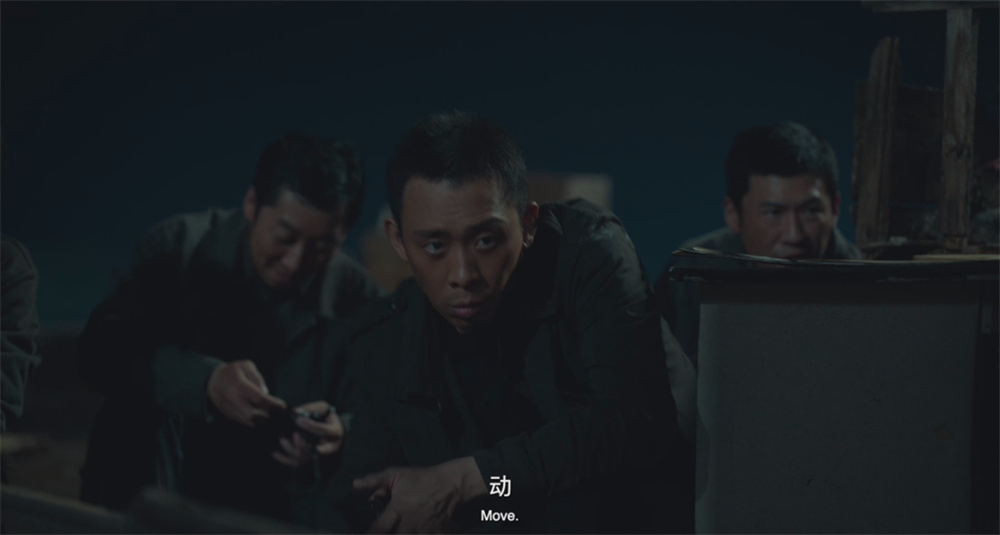
The police spirit of the Third Brigade has never been lost
However, they are not policemen after all. This sense of honor is only "borrowed". It is scarce, scarce and accidental. During the long years of chasing the murderer, what they felt most was the wear and tear of life on them, the fatigue of the monotonous work day after day, and the confusion of not seeing the hope of solving the case... This kind of pursuit of the murderer is too tiring. Too bitter and too hopeless.
What's more, just like what Cheng Bing wrote in his diary, "No one can live in a vacuum." This is his principle for finding suspects, but this sentence also applies to the Third Brigade and himself. The brothers all have lives and people who need to be protected, and they cannot be like Cheng Bing who puts all his money in and never looks back.
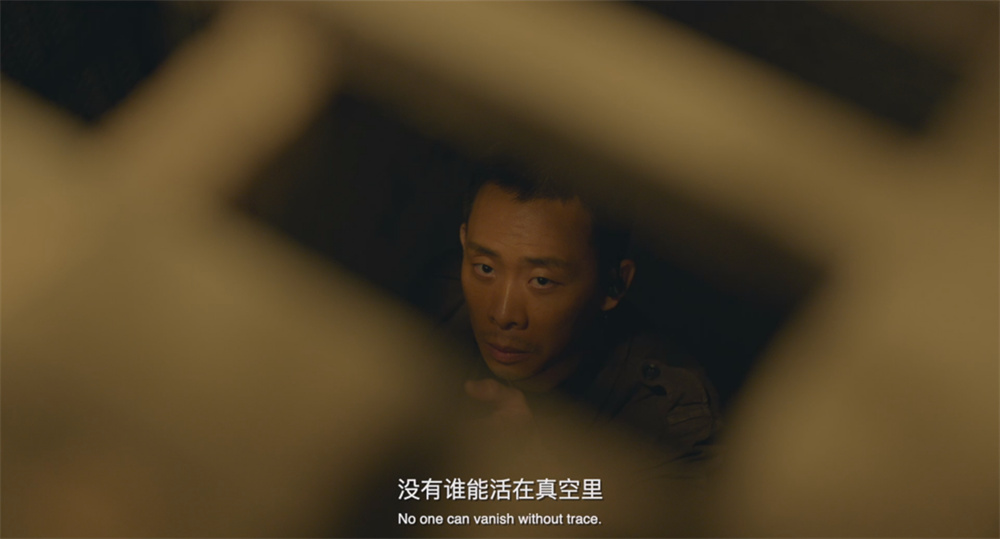
Cheng Bing's brothers can't live in a vacuum either.
Therefore, the brothers of the third brigade chased the murderer together with Cheng Bing, but they all left in the middle. In Changsha, Ma Zhenkun left, he had a lover he could not live up to; in the fireworks of the Northeast Spring Festival, Liao Jian left. He may have no hope for the rest of his life, but he still has his son; on the southern island, Xu Yizhou left, and he When he met the one he loved, he wanted to embrace a new life; in the end, Cai Bin also left. He suffered from gastric cancer and needed treatment...
Only Cheng Bing persisted. This person who is still "looking backward" may remind some viewers of Jiang Yang in "The Silent Truth" or Wang Xiang in "The Long Season". However, when they "look back", they are always surrounded by fellow travelers, which makes their ascetic journey less lonely and gives them a little warm hope.
Cheng Bing was different. In the end, he was left alone. This made his persistence even more futile. From 2009 to 2013, I traveled more than 10,000 kilometers from Changsha in Hunan, Deyang in Sichuan, Shenyang in Liaoning, Maoming in Guangdong, Xishuangbanna in Yunnan, Wuzhou in Guangxi to Tongren in Guizhou, and did various low-level jobs, just to chase the murderer. Goal...do you really want to stick to it? Hasn't he lost enough?
Cheng Bing was not without wavering moments. His body and mind were already scarred and riddled with holes. After experiencing yet another huge futility, Cheng Bing walked in the park in despair. He saw that all men, women, old and young in the park were so peaceful. They were laughing and playing without any distractions. But all this had nothing to do with him. Ever since he was imprisoned, he had He was already too far away from such happiness. He could have had it, but he was the only one who ended up like this.
He finally wrote the text message "I can't chase you anymore", but he scrolled through the address book on his phone, but he couldn't find anyone to send this text message to. He couldn't send it at all, and he still couldn't let go of his "ego" .
The starting point of Cheng Bing's "ego" is the same as before, for justice and for a breath, but it is different. After more than ten years of chasing the murderer, he lived his life as an ascetic and a martyr. Isn't this a confrontation between him and fate? Just like Cai Bin, who has been with Cheng Bing for the longest time, he finally persuaded Cheng Bing to let go: Wang Eryong has never been discovered. Is God going to give him a chance to start over?
But Cheng Bing could not give this opportunity, he could not agree with God's arrangement, and he could not surrender to fate. He is the same as the old man who suffered repeated defeats and defeats when fighting the sea: a person can be destroyed, but not defeated!
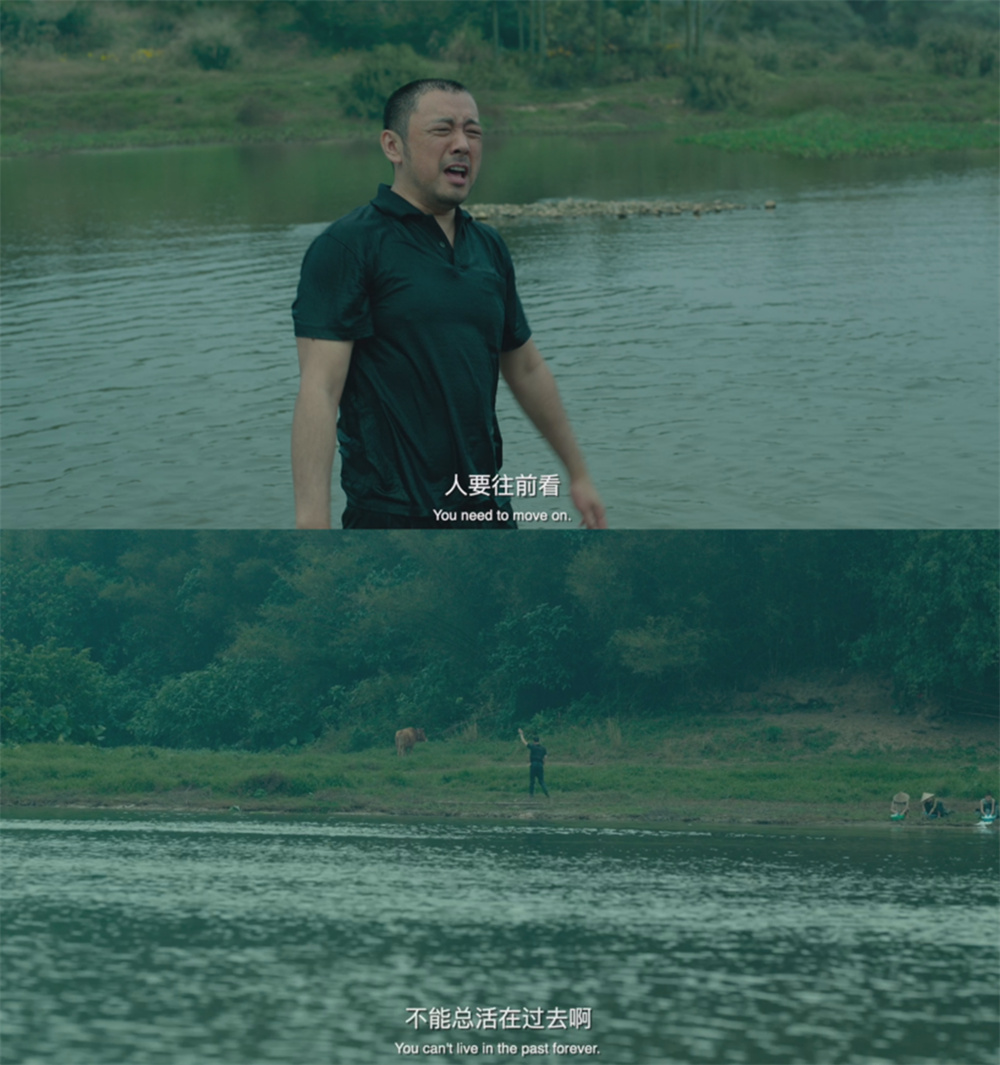
Facing Cai Bin's persuasion, Cheng Bing waved his hand and walked forward alone.
Finally, Cheng Bing waited for belated justice, and in this protracted struggle with fate, he won the final victory. He was finally able to fulfill his old promise: "The suspect has been brought to justice. Please tell Director Yang that the mission of the Third Brigade has been completed!"
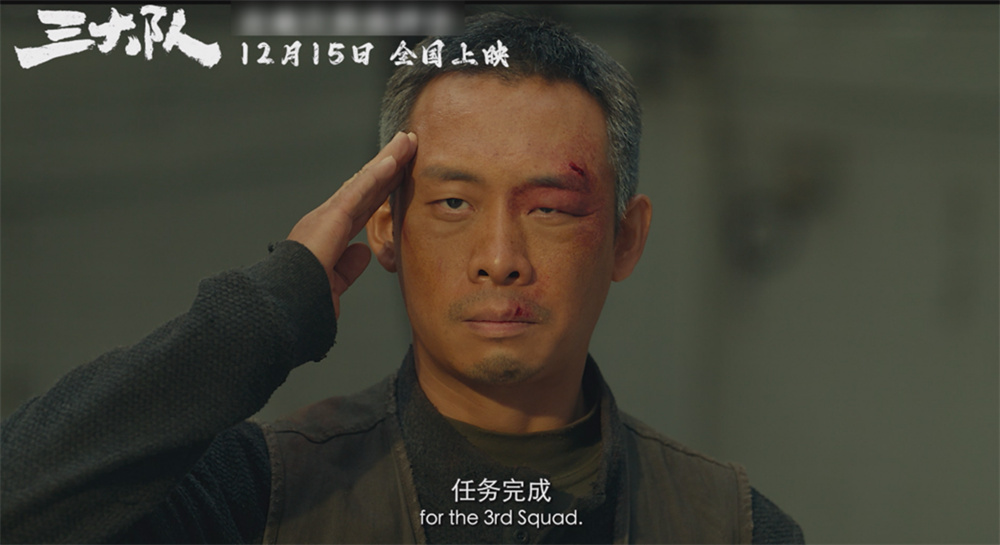
The mission of the third brigade is completed
"The Third Brigade" successfully established Cheng Bing, and also established the heroism and idealism that are extremely scarce in this era.
"Letting go" is the most mainstream choice. There is nothing wrong with this choice. After all, "no one can live in a vacuum." But in this era, after all, we need some "egoistic" people like Cheng Bing to seek Even though thousands of people have gone to justice, I always hold my back and never give in when faced with the ups and downs of fate.
This kind of "self-grasping" truly demonstrates how powerful a person can be and how pure a person's spiritual realm can be! After all, it is because of the existence of such a personality in the world that we have a direction to yearn for and more reasons for peace of mind and attachment.
A viewer on Douban quoted Mr. Yu Guangzhong's words about idealism to describe Cheng Bing's pursuit of the murderer, which couldn't be more accurate. "The path to your ideal is often unsatisfactory, and you will suffer a lot for it. But, kid, you have to try your best. The ending of an idealist is tragic but not pitiful."
After completing the mission, Cheng Bing walked to the bustling crossroads and felt unprecedented relief. He suddenly didn't know where to go, but he could finally go in any direction he wanted to go, and he went to where he wanted to go without any worries. Live a good life. Twelve years are too long, and all the losses are too miserable, but Cheng Bing is not pitiful, everything is just tragic. Through sorrow, heroism is reached - justice is finally protected, and people cannot be defeated after all.
From a cinematic perspective, there is still room for improvement in "The Third." After the efficient and sharp narrative at the beginning, too much content was crammed into the middle. If it were not for the surging emotional support, the pacing would be quite obvious, and the documentary-style camera scheduling would sometimes seem too much for a TV series. Fortunately, the characters stood up, the performances stood up, and the expressions stood up. The aura of heroism and idealism covered up the technical flaws.
It turns out that in a domestic police film, real place names can appear, there can be reflections on torture to extract confessions, and there can be tragic expressions of pursuing justice... This is worth encouraging.


